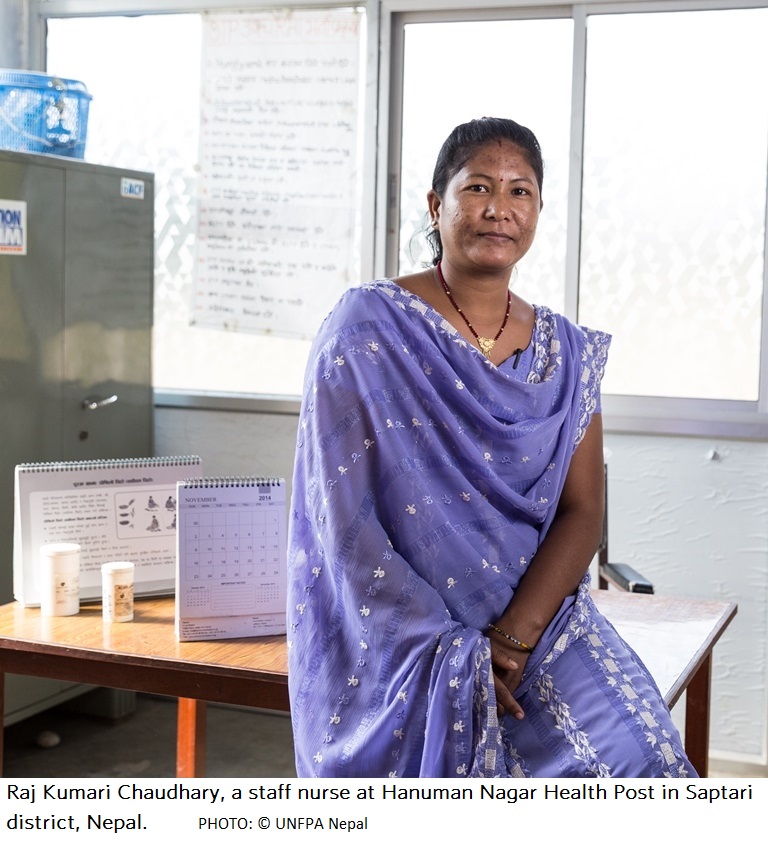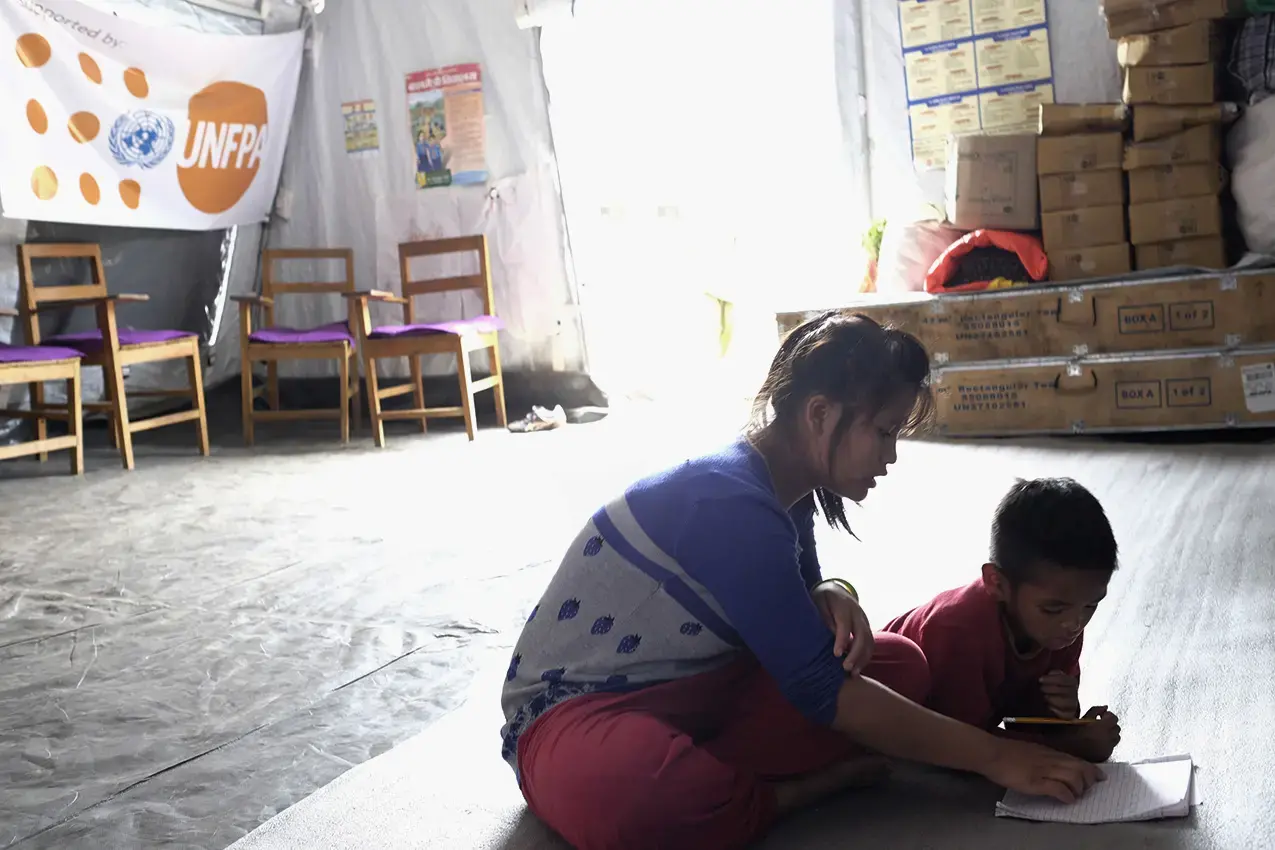UNFPA is working to ensure that health care providers are fully and comprehensively equipped with the skills and competencies necessary to give health services and referral for the well-being of GBV survivors.
Health service providers are the front line in the response to gender-based violence (GBV). For women who have experienced violence - as 48 percent of Nepali women report that they have - the shame, stigma, and pressure from communities and families often prevents them from seeking any help at all, let alone from the police or legal services. Going to a doctor or nurse, however, does not carry the same associations, and health care providers can often uncover abuse, and follow up with good treatment and referrals, even when women do not mention it explicitly.
For this reason, UNFPA, the United Nations Population Fund, works in Nepal to ensure that health care providers are fully and comprehensively equipped with the skills and competencies necessary to give health services and referral for the well-being of GBV survivors. On the Day for the Elimination of Violence Against Women, UNFPA Nepal is happy to celebrate a small step forward.
A new clinical protocol on the management of gender-based violence aims to give the proper guidance to health workers, and an accompanying training package focuses on developing the competencies needed to implement the protocol with all the skill, sensitivity and respect for the survivor that a proper response requires. The protocol was developed by the Ministry of Health and Population with UNFPA support, and with technical assistance from Jhpiego. It was finalized through an extensive consultative process with a range of different stakeholders, including the government and development partners.
Health care providers are positive about this new development

Identifying GBV cases, knowing clinical symptoms, providing the patient with information about its consequences on women's health, and providing appropriate psychological care, have always been challenging tasks without the proper guidance says Raj Kumari Chaudhary, a staff nurse working in a government-run health center in southern Nepal. "Now the protocol has made life easier for us," she continues, well aware that she, and other health workers like her, are likely to be the first point of contact for survivors.
The protocol aims to empower health care providers to identify GBV survivors, manage cases and make appropriate referrals. It helps them conduct a clinical assessment of the survivor, provide appropriate treatment, preserve medico-legal evidences and report the findings to an appropriate level. It will strengthen the health system response the GBV, thinks Dr Kishor Awasthi, a government family planning officer working in Baitadi, far-western Nepal: "Now with the protocol, I think health care providers will gain the required competencies to deal with GBV cases in a health setting."
"GBV is a big issue in our district too. I am happy that this protocol will strengthen our capacities to cope with difficult situations," says Gyan Chandra Rajbanshi, the health post chief at Shitalpati in Sindhuli district.
Gender-based violence is a very serious issue in Nepal. The Nepal Demographic Health Survey 2011 shows that among women (15-49 years), 22 percent experience physical violence and 12 percent sexual violence at least once. Domestic violence, marital rape, dowry-related violence, child marriage, polygamy, female infanticide, witchcraft accusations, Chhaupadi, Badi, Deuki, Jhuma, Kamlari, and trafficking of women and girls for sexual exploitation are particular problems of gender-based violence in Nepal. Although the Government of Nepal has made commitments to ensuring that laws and policies are in place, change is slow to occur, in part because of the culture of silence surrounding GBV.
The protocol hence represents an important step forward: it capacitates Nepali health workers to better recognize the issue, and to take action.
Read/Download:



